I was never a romantic, to begin with, says Shabana Azmi as she gets candid about love and more
the concept of arranged marriages as she once was. Has she mellowed, or what?
Excerpts from an engaging interview with the actress who has mastered the art of pushing the envelope…
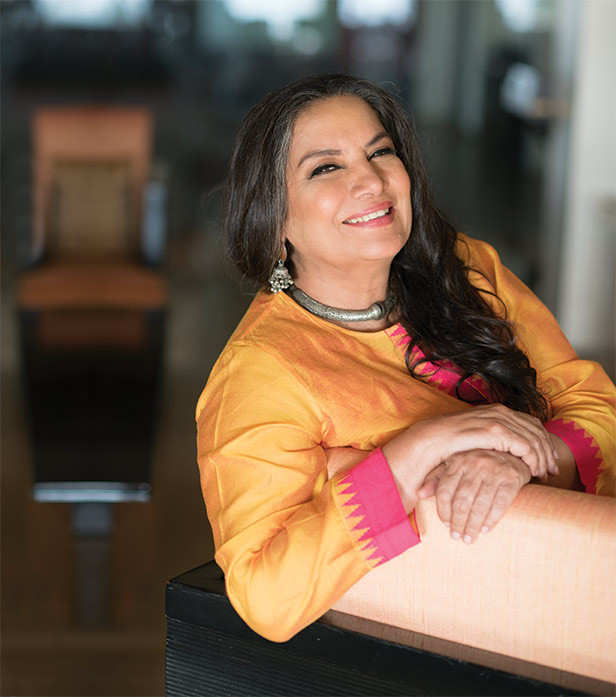
You’re working with Shekhar Kapur after quite a gap…
It wasn’t different at all, it’s like there has never been a gap at all. Shekhar and I have become good friends over the years.We haven’t kept in touch on an everyday basis but we have stayed in touch. He is a director who loves his actors; it is one of his strongest points, apart from understanding the script. He creates a relationship with his actors. He inspires them to do what he wants, rather than shoving it down on them and making them do it. It is very comfortable. I love him as an actor; he is the right mix of a director who can keep you in touch with the larger scheme of things while also knowing what the immediate requirement for the scene is. I also loved working with Sajal Ali, she is lovely and funny. We bonded well. Not only during the shooting but also afterward because we went to the Toronto Film Festival together. I like her very much.
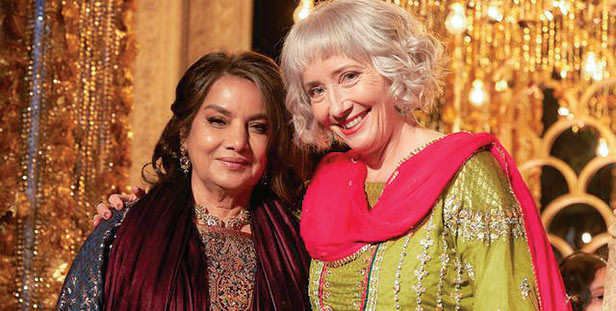
Emma Thompson is hilarious in What’s Love Got To Do With It? Do you have any funny memories while shooting or interacting that you’d like to share with us?
Emma is so funny. Look at the outlandish clothes she is wearing, she had a big say in the clothes. Every time she came wearing those ghastly clothes and we reacted, she’d just say, “But I chose them myself.” She is trying to do the whole Bollywood number in the film and enjoyed doing it. We were under a strict COVID protocol. So we couldn’t meet each other after shooting. Normally, when you are outdoors and shooting, you bond after work. But we couldn’t do that. She is a generous, warm and extremely funny person. Human rights concerns are something I share with her. She messaged me after watching the film to say that she loved it. So that feels good.
Your scenes with her look natural. How difficult is it to get a scene done with her without laughing?
It is extremely difficult, let me tell you. We had all trained ourselves because she would keep improvising. If you see the outtakes, she just says something and everyone starts laughing and then they’d have to cut. So it got quite tricky for the editor to say cut just before we’d burst out laughing, including Shekhar Kapur. He laughed a lot too.
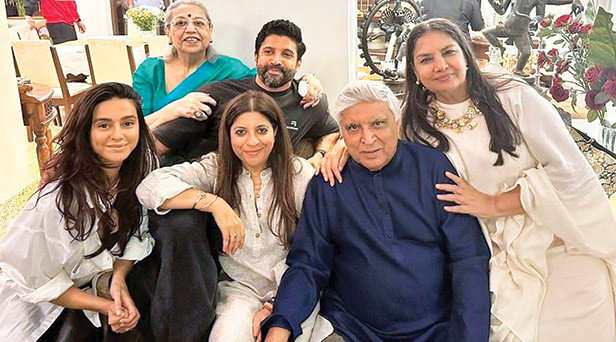
Assisted marriages are not so prevalent in the West. Did this film make you discover something to the contrary about how they perceive this arrangement there?
I don’t know how big it is in the US but it is big in the UK. And then they have Tinder. If Tinder is the way young people meet new people, then assisted marriage is something they are okay with. The important thing about What’s Love Got To Do With It? is that Jemima Khan (writer) takes these stereotypes and turns them on their heads. If you look, it is not a comparison; it is a warm look and it is done with humour and grace. That is why you come out feeling so good. It’s just an observation.
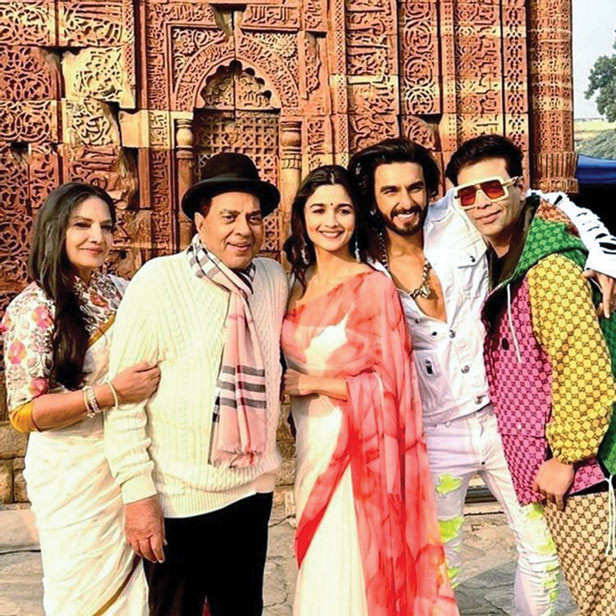
What’s your take on arranged marriages?
There was a time when arranged marriages were an idea I couldn’t even comprehend. I think there is some merit to arranged marriages in a society where you are not able to meet people of your cultural background. And since today it’s so easy for youngsters to go on apps like Tinder, I think it would be much safer to let your parents decide. That’s why in the film they talk about assisted marriages rather than arranged marriages. The thing is, I am not as horrified as I was about the idea of an arranged marriage today as I was earlier.
Doing the film, did you relate To the concept pf arranged marriages that we’re familiar with in India?
Aisha Khan is a character you can relate to. She is at the cusp of balancing modernity and tradition. On the one hand, she wants to think of herself as a much more progressive and modern person but on the other, she is also bound by tradition. So I think there are a lot of women today who can identify with Aisha. She is the matriarch of the family and what she wants is for things to be good for her son. You know the scene where I tell my son that all I want is for you to be happy? People have reacted a lot to that scene. Do you know that was the first shot I did for the film? I wanted to kill Shekhar. I told him that this is the most difficult part and you’re making me begin with it. But he told me if you get this right, everything else will fall into place, which is exactly what happened. I think what it did was create a bond between Shazad Latif , who plays my son, and me in the film. So I think it worked for the best.
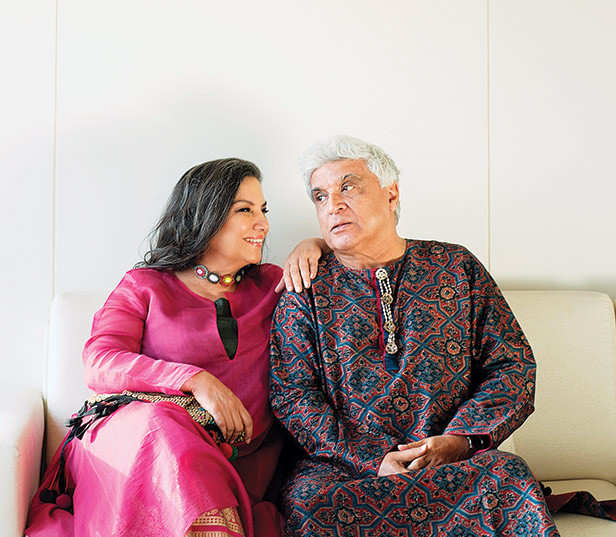
How has the definition of love changed for you over the years?
I was never a romantic, to begin with. I find that young girls, maybe today it has changed today, but young girls during my era had great ideas about romance. It would be fed on the fairytales, storybooks, and all the little cartoon books they would read. But I was never like that because I saw my parents’ marriage, which started with a lot of romance and then evolved into friendship. So what I have valued greatly is friendship. And to have love without respect is possibly not even possible. For me, respect is an important part of love. Also, I believe in giving your partner space. I think it is important for people to have their own space outside of that love; otherwise, we can tend to suffocate it. But if you have a happy relationship, as I have with Javed (Akhtar), then it is one of the most nurturing relationships that can exist. Javed and I have huge fights and want to kill each other but at the end of the day, respecting the other person is important. We have the same worldview. We were children of parents who were so similar that we should have had an arranged marriage. Both our fathers were poets, they were both from communist parties and they were both Hindi film lyricists. There’s a lotmof friendship between us. Javed is fond of saying that Shabana is my best friend. And this friendship is so strong that even marriage could not ruin it.
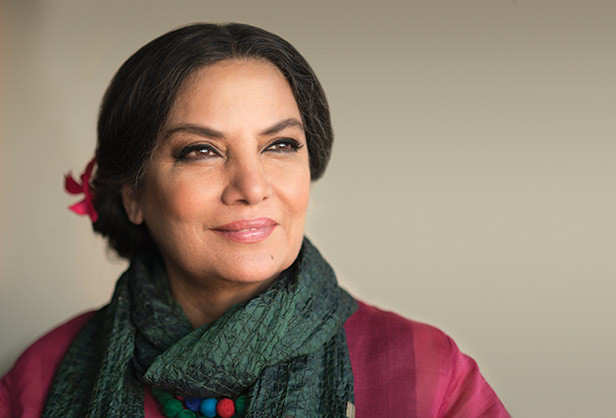
How is your bond with Farhan and Zoya, his children from an earlier marriage?
We are very friendly. I have a great relationship with them based on friendship and trust. I value Farhan and Zoya very much and I think they value me. I think a lot of that credit goes to their mom Honey (Irani). I must say that she was very generous. If she had decided that the kids would not be friends with me, then they couldn’t have been friends with me. So I have to accept in all honesty that I owe it to Honey that I have such a beautiful relationship not only with her children but also with her. We have a beautiful, happy bond. And I don’t poke my nose in their business. If I feel there is something they would rather not talk about, I do not talk about it.
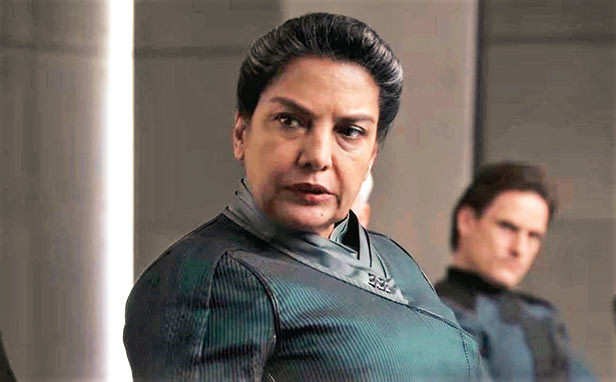
Steven Spielberg’s Halo sees you in a sci-fi series. how refreshing is it, as a veteran, to be approached for such interesting roles?
We had a boot camp in which we had to do all the physical work. But it has been a completely different experience because I have never done a sci-fi film. A lot is being done in front of the green screen. It hones your imagination even further. But what is interesting here is an instance of total colour-blind casting. Asians have been saying for a long time that Asians get cast because of their ethnicity. If Laurence Fishburne can play Othello then why can’t Othello be played by a Chinese or an Indian? Why do you have to be cast only because of your ethnicity? This has been going on for more than 20 years now. It’s only now, I play Admiral Margaret Parangosky and nothing is being said about my ethnicity. I have not been asked to change the colour of my hair or how I speak the language, it’s all been taken for granted. The whole series has people from every country and every ethnicity, which I hope becomes the way forward.
For all the latest Entertainment News Click Here
For the latest news and updates, follow us on Google News.

